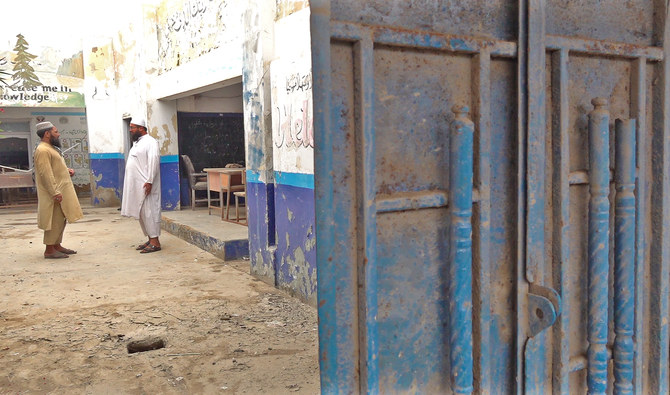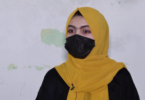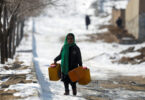Naimat Khan
KARACHI: In the heart of Afghan Basti, a refugee enclave located on the fringes of Karachi’s northern bypass, stands the dilapidated building of a school that became dormant soon after the shadow of Taliban rule fell over the neighboring state two years ago.
The closure of the educational facility has affected the lives of hundreds of young students, including an 11-year-old boy, Gul Ahmed, who is employed in a nearby workshop repairing bicycles for elderly members of his community.
Ahmed cannot help but yearn for a more carefree childhood with his friends and textbooks, each day passing the shuttered school on his way.
“If this school were still open, I would have had the chance to continue my education,” he said during a conversation with Arab News.
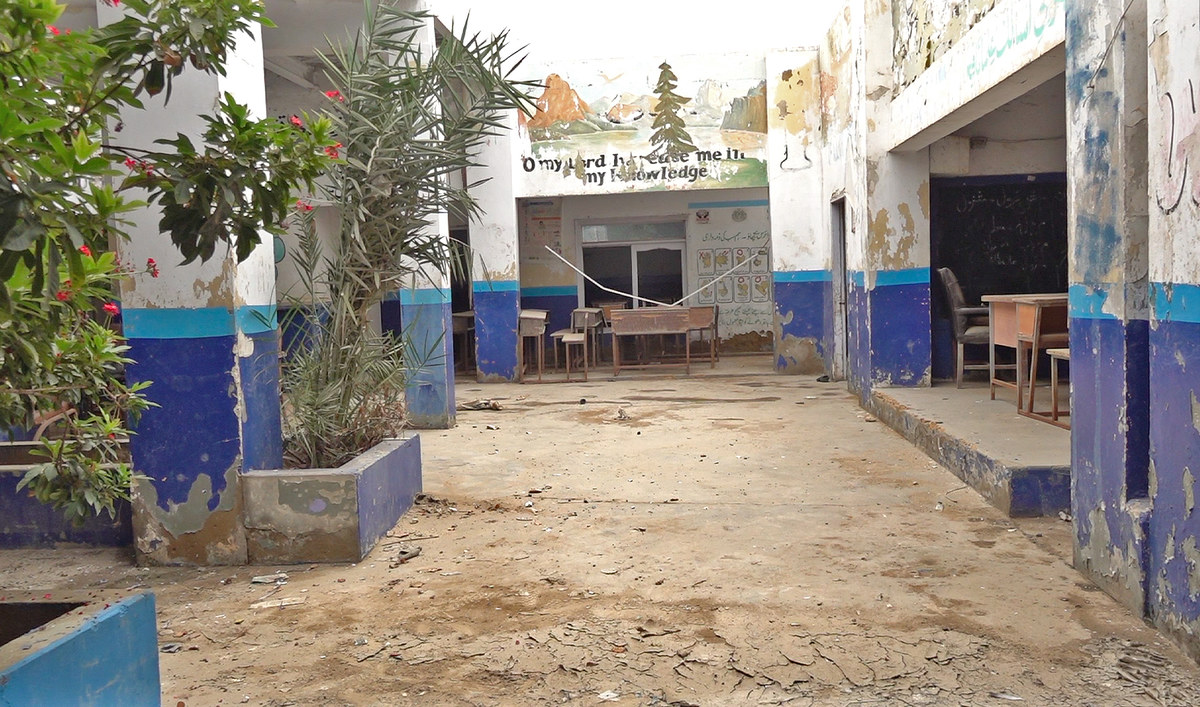
The picture taken on August 17, 2023, shows a deserted Ghazi Amanullah Khan High School in Karachi, Pakistan, on August 17, 2023. (AN photo)
Named after Afghanistan’s reformist king, Ghazi Amanullah Khan High School opened its doors in 2006 on an unpaved, litter-strewn street in the city. Funded by a German NGO, it operated under the supervision of the education ministry in the war-battered country, with the sole objective of serving Afghan refugees residing in this downtrodden neighborhood.
According to the United Nations refugee agency, UNHCR, there are over 65,000 officially registered Afghans in Karachi. A significant portion of this population resides in Afghan Basti, while others are concentrated in a different part of the city known as the Al-Asif neighborhood.
Following the fall of Kabul in August 2021, Afghanistan faced severe financial challenges since Western government and donor agencies refused to fund the new Taliban administration or any other projects carried out by the Afghan government.
“This school remained operational for approximately twenty years,” Habib-ur-Rehman, the school’s principal, told Arab News. “It was run by a German NGO. However, with a change of government in Afghanistan, they withdrew their support.”
“We attempted to sustain it on a self-help basis,” he continued. “We managed to operate for five months but couldn’t continue without sufficient resources.”
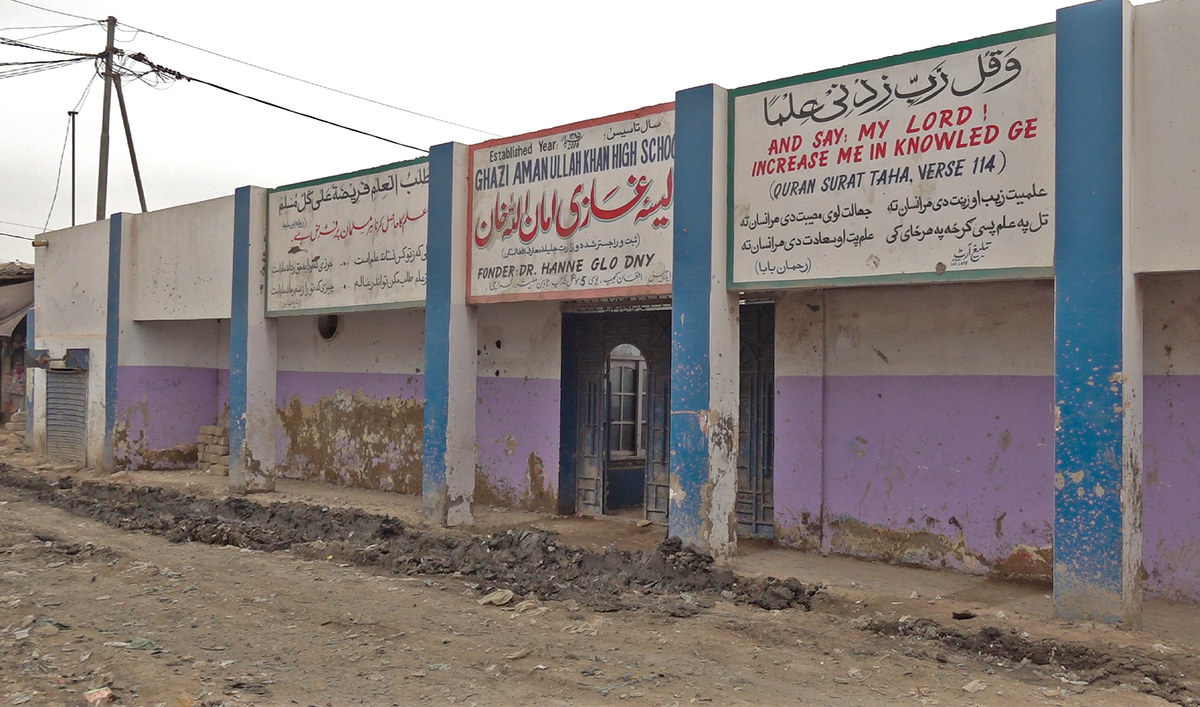
The picture taken on August 17, 2023, shows the exterior view of Ghazi Amanullah Khan High School in Karachi, Pakistan, on August 17, 2023. (AN photo)
He noted that a team of 12 male and four female teachers were employed at the education facility when its management decided to close its doors. These faculty members were responsible for educating 430 students, including 180 young girls.
The school also offered co-education at senior levels.
As the principal guided Arab News through the building’s corridors, a haunting sense of abandonment filled the air, painting a stark picture of the silence that replaced the once-enthusiastic hustle and bustle of students.
“When I came here and saw the conditions, the situation truly pained my heart,” said Naqeeb Ullah Khan, an alumnus who completed his intermediate studies at the school.
He expressed confidence that Afghan children would return if the school’s doors were opened once again.
Haseena Qazi Khan, a former teacher of the school, now lectures at Syed Jamal Al-Din Al-Afghani School, another educational facility for refugees in the Al-Asif neighborhood.
“The children are deprived,” she remarked, referring to the students who can no longer attend their school. “They often resort to labor work in cabins and shops. When I witness all of this, I feel a deep sense of regret.”
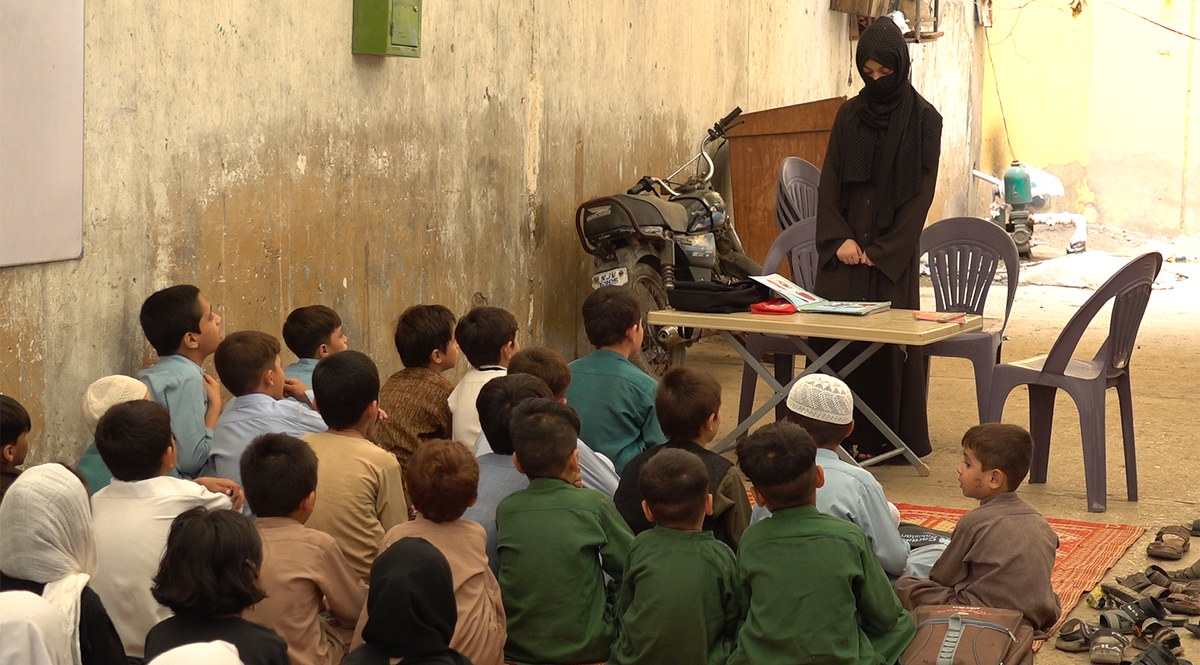
The picture taken on August 17, 2023, shows Haseena Qazi Khan, a former teacher of Ghazi Amanullah Khan, teaching students in Karachi, Pakistan, on August 17, 2023. (AN photo)
Khan added that she finds it particularly distressing to see girls dropping out due to circumstances beyond their control.
“As a woman, it doesn’t sit well with me,” she continued. “I want other girls to have the opportunity to study, just like I did.”
Syed Mustafa, principal of Jamal Al-Din Al-Afghani School, acknowledged the financial vulnerability of the education institute in the face of diminishing funds.
“We encounter numerous challenges since we lack support,” he said. “Financial problems persist. If assistance doesn’t arrive in the next few months, this school might also face closure.”
Sitting in his workshop, young Ahmed reflected on how the school could have offered great opportunities for him and his friends.
“The school was good,” he reminisced. “Studying there would have been wonderful. The classes were excellent, and the teaching was brilliant.”
Courtesy: arabnews

